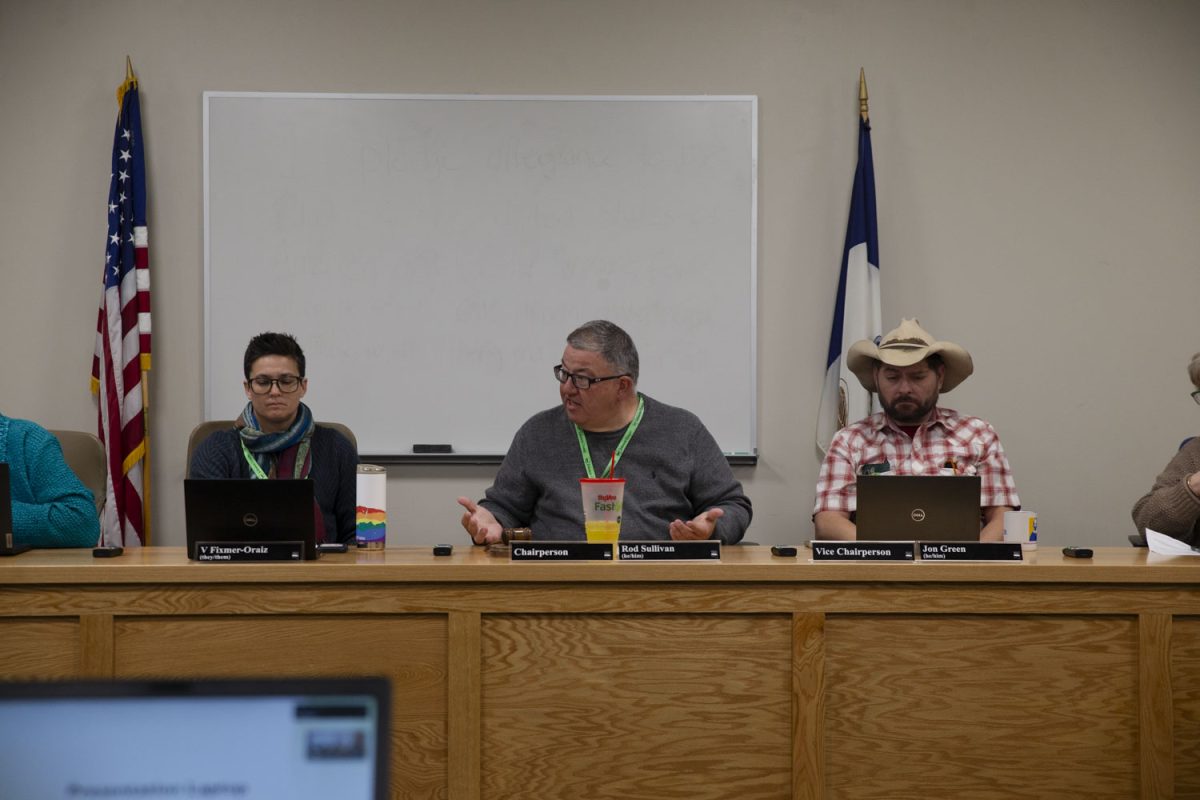
Experts from numerous colleges and universities across Iowa believe climate change will continue to play a pivotal role in the state’s agriculture. A statement was released Oct. 18 by a group of leading Iowa scientists about Iowa’s climate in 2013 and how adverse weather changes caused by climate change will affect the state.
Researchers involved with “Iowa Climate Statement 2013: A Rising Challenge to Iowa Agriculture” said they hope to advocate for awareness about soil preservation and maintain agricultural production. Bian Li, the director of planning at the World Food Prize Foundation, said climate volatility — a more suitable term for the issue used by the foundation — was a central theme of last week’s agenda at the Borlaug Dialogue international symposium.
Climate volatility, she said, is a far more threatening issue for agricultural production in less-developed countries worldwide. However, she said, Iowa farmers are protected by insurance and receive government payouts. “In some places, up to two-thirds of their economy is the agriculture,” Li said. “In less-developed countries with longer drought periods and floods, those farmers have nothing to protect them; their harvest is gone when something strikes.”
An Iowa State University expert in climate science said this year was the wettest spring in Iowa’s 140 years of record keeping, which led to numerous problems across the state. Intensified rain periods from March through May caused increased farm-chemical runoff, soil erosion, and sedimentation, which links to the state’s problematic water quality, said Gene Takle, the director of the Climate Science Program at ISU.
Takle said trends in Iowa’s agriculture related to the climate are both favorable and detrimental right now. “Some of these more abundant rainfall events mean we can plant more corn per acre, so we have higher production,” Takle said. “However … abundant rains generally come in spring and early summer, so that prevents planting.“
Takle said there were several acres in the state that were not planted this year because of increased rainfall, an issue that could become increasingly problematic. Local farmer Steve Swenka said climate change has not posed a risk to his crops. So far, he said, he is around 10 days behind from his normal year, but his crops have thrived in the weather.
Swenka noted that Iowa farmers are historically used to adapting to weather changes. “Every year, you plan ahead to be proactive to protect the soil and the watershed …” he said. “We’ve been doing this for the last 100 years.”
He said protecting his land is important to him for more than just the crops. “The farm I live on has been in our family for over 100 years,” Swenka said. “Protecting the farm and our natural resources is way more important to me than it would be to any scientists.”
One expert in environmental research at the UI said climate changes have already manifested problems for the state. “The increasing and intense precipitation in spring time causes flooding for cities and soil erosion for farmers,” said UI Professor Jerald Schnoor, a co-director of the Center for Global and Regional Environmental Research. “It also causes them to lose their fertilizers if they’ve applied them — a large financial loss.”






